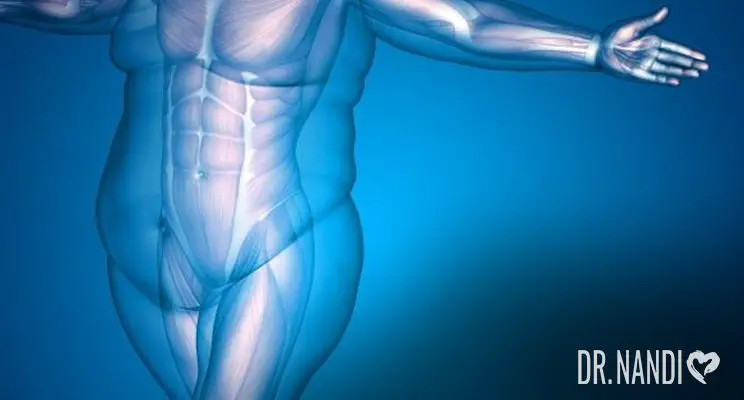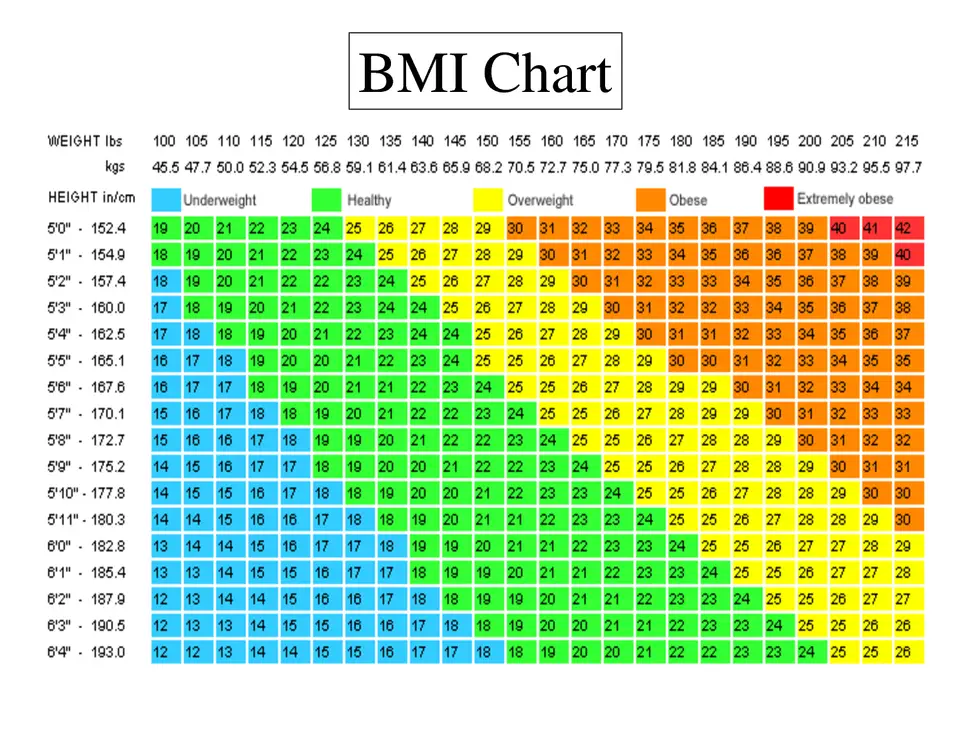Obesity is a growing problem in the United States and other countries around the world. I am seeing an increasing number of patients who are struggling to maintain their weight and/or have found themselves in the obese category. Obesity is a complex issue, and although there are some common causes and risk factors, each situation is unique and should be treated as such. No two patients are exactly alike.
In my practice, I focus on educating my patients about obesity and its accompanying health risks. We work together to create a plan best suited to the patient’s needs and lifestyle. Change is not always easy, but when someone is committed to their health and willing to be an active player in their treatment plan, they are very likely to see positive results.
Today I want to dive deep into the issues most commonly responsible for obesity, as well as a sample 5-step treatment plan to regain health and vitality. I suggest working with your own medical professional to tailor the plan to your situation.
What Is Obesity?
The definition of obesity is having an excess of adipose tissue (too much fat). When one’s weight exceeds 20% higher than what is considered normal and healthy, they are considered to be obese. You can see what is considered a healthy weight in the chart below.
As of 2017, an estimated 36.5% of U.S. adults have obesity. That is 1 in 3 American adults. As a nation, we are spending over $147 billion a year to treat obesity and resulting medical conditions. (1)
Most physicians use Body Mass Index (BMI) to roughly gauge whether a patient is too thin, normal, overweight or obese. It is not a perfect means of measurement because it only takes weight and height into consideration and not muscle, skeletal structure or fitness level into account.
If you have a BMI between 25-29.9 you are considered overweight. If it is above 30 then you are considered obese. If you know your weight and height you can get a general idea of where you fall on the scale. Remember, this is not a perfect method but can give you a general idea of what a doctor might say about your weight.
Am I Obese? BMI Chart
If I Workout And Have More Muscle, Is My BMI Still Accurate?
If you work out and have good muscle tone then BMI may not be an accurate measurement of your weight and health risk. Two people who weigh the same but have different muscle mass will not only look different, but the one with better muscle tone will most likely be healthier and have a lower risk for health problems. Most complications of obesity are due to too much fat, not muscle.
Location Of Fat Is Important
The location of fat/weight is also an important thing to consider. Someone who carries a lot of extra fat around their abdominal region, for example, is more at risk for health complications than someone who carries extra weight in their thighs or lower body. (2)
Full Body Scan
The most accurate way to determine one’s health based on weight and fat distribution is through a full-body scan, like a DEXA Scan. This uses a special technology that measures precisely the amount of fat, lean mass, and bone density in an individual and can also show you where the most fat is located. You can ask your physician about getting a full-body scan. In some cases, it may be covered by insurance, with others you might be asked to cover it out of pocket. I believe it can be a great tool to measure progress when you are undergoing a personal transformation.
Another Way To Measure Obesity – Waist To Hip Ratio
If you are not satisfied with your BMI results but do not want to pay for a full-body scan, another way to measure if your weight is in the obese category is by calculating your waist-to-hip ratio. All you need is a long measuring tap. Simply measure the circumference of your waist and your hips. Take your waist measurement and divide it by your hip measurement.
Male Waist To Hip Ratio
- Less than 0.9 = low risk, healthy weight
- 0.9-0.99 = moderate risk, overweight
- 1 or over = high risk, probably obese
Female Waits To Hip Ratio
- Less than 0.8 = low risk, healthy weight
- 0.8-0.89 = moderate risk, overweight
- 0.9 or over = high risk, probably obese
Most Common Causes Of Obesity
Why are some people more susceptible to obesity than others? Some sources say it is a simple matter of calories in versus calories out, but research does not back this up for the majority of cases. Certainly, overeating plays a role in obesity but it is only one of a myriad of factors. Two people may consume the same amount of calories and weigh completely differently.
Let’s look at the most common causes of obesity. In most obese patients I see, there are multiple factors that lead to their condition.
Genetics and Weight
Genetic changes occur too slowly to have a true effect on the current obesity epidemic. However, your genes can still play a role. Your body receives instructions from your genes on how to respond to changes in its environment. Therefore, they may contribute to an increased level of hunger or food intake. (4, 5)
Overeating and Weight
While it is important to eat enough instead of nibbling, eating more calories than your body requires on a regular basis will result in weight gain. Food is also not created equal. What you eat is important. If you are eating healthy whole foods instead of processed junk food, you are less likely to overeat. (11)
Sedentary Lifestyle and Weight
Your body needs movement to build muscles, function properly, and yes, to burn calories. Research has found that lack of exercise is correlated with weight gain and obesity. When you’re sitting around, you are also more likely to eat emotionally or out of boredom, even though a sedentary body needs much fewer calories to survive than an active one. (12)
Medications and Weight
Certain medications may increase your appetite resulting in weight gain or obesity. Other medications may lead to minor changes in your weight or extra water weight. Some medications, including steroids, may lead to more extensive weight gain. (6)

Psychological factors and Weight
Stress, sadness, and certain mental health issues, including depression, anxiety, and eating disorders, can lead to overeating or binge eating which may result in obesity.
Diseases and Weight
Certain illnesses, including Cushing’s disease and polycystic ovary syndrome, may lead to weight gain or obesity. Untreated thyroid functions may also lead to weight gain. (6)
Social issues and Weight
Research shows that those who have obese friends are more likely to become overweight or obese themselves due to mimicking their eating behaviors. Participating in too many social gatherings and outings that involve large amounts of unhealthy foods can lead to obesity as well. On the other hand, social isolation may lead to emotional eating resulting in weight gain. (7, 8, 9)
Other Risk Factors
Ethnicity and Weight
The highest rate of obesity has been found among non-Hispanic blacks (48.1%) followed by Hispanics (42.5%), non-Hispanic whites (34.5%), and non-Hispanic Asians (11.7%). (1)
Childhood Weight
Children who grew up obese or in an obese family are more likely to continue on with unhealthy eating habits and remain obese as adults.
Hormones and Weight
Your sex hormones, growth hormones, leptin, and insulin levels can influence your metabolism, fat distribution, and appetite. (10)
Poverty and Weight
Lower-income individuals are more likely to be obese. This may be related to their lack of resources to by healthy foods and/or lack of proximity to healthy grocery stores and farmers market (living in a food desert). College-educated individuals are also less likely to be obese. (1)
Why Obesity Is Dangerous
Obesity is a worldwide problem. It does not only affect Western countries and societies but every nation on the planet. The problem with obesity is not about vanity, but about your health. Research evidence links obesity with a list of serious health conditions as well as increased mortality. (13, 14, 15)
Obesity has been linked to and can increase your risk of the following conditions (13):
- Coronary Heart Disease
- Hypertension (High Blood Pressure)
- Stroke
- Type 2 Diabetes
- Cancer
- Sleep Apnea
- Gallstones
- Osteoarthritis
- Dyslipidaemia
- Cerebrovascular Disease
- Metabolic Syndrome
- Pulmonary Abnormalities
- Gastrointestinal Abnormalities
- Infertility/Menstrual Irregularities
The Most Dangerous Type Of Fat
The danger does not only lie in your weight or how much fat you carry. Where you carry that fat matters too. The fat that accumulates around your belly region is called visceral fat, or visceral adipose tissue (VAT), or ectopic fat. Visceral fat is the most dangerous for your cardiometabolic health, and it has been linked to insulin resistance, metabolic syndrome, diabetes, heart attacks, and stroke. (17, 18)
What Causes Obesity In Children?
One-third of children in the United States are overweight or obese. Childhood obesity is a serious and growing problem. It has been linked to multiple issues, including:
- high-calorie, low-nutrient foods, and beverages
- lack of exercise
- too much screen times
- medications
- sleep routines
- family and community environment
How Obesity Affects Child Development
Childhood obesity can lead to various physical and emotional health issues, including:
- High blood pressure
- High cholesterol
- Cardiovascular disease (CVD).
- Increased risk of impaired glucose tolerance, insulin resistance, and type 2 diabetes.
- Asthma
- Sleep apnea.
- Joint problems
- Musculoskeletal discomfort.
- Fatty liver disease,
- Gallstones
- Gastro-esophageal reflux
- Depression
- Anxiety
- Low self-esteem
- Social problems, including bullying
- Eating disorders
Unhealthy eating and lifestyle habits, being overweight, and obesity also create an unhealthy path for children to continue their adult life engaging in unhealthy eating patterns and lifestyle habits risking further physical and emotional health issues. (19, 20)
 My Personal RX: Creating A Successful Weight Loss Plan
My Personal RX: Creating A Successful Weight Loss Plan
Maybe you are trying and not seeing results. Perhaps you do not even know where to start. You need a successful weight loss plan with realistic and solid action steps that you can follow. You do not need a fad diet or a quick fix, but a sustainable lifestyle change.
With my patients, I create an individualized plan that I believe will benefit them the most. I always focus their plan around these five areas:
- Stress
- Sleep
- Diet
- Hormones
- Exercise
Work with your own physician to come up with a weight-loss plan that is best for you. The following 5-step weight loss plan has brought remarkable, sustainable results for the majority of my overweight patients who were committed to long-term change and healing.

5-Step Weight Loss Plan
Making a lot of changes at once can be overwhelming and hard to maintain long term. Focus on one of these areas at a time, for a week or even an entire month until you really feel you have formed new habits.
Step 1: Manage Stress
Stress in moderation is a natural and healthy response to survive challenging times. Chronic stress, however, is unhealthy. The grizzly bear is not chasing you 24/7, yet when you are experiencing overwhelming amounts of constant stress, your body thinks it is in non-stop danger. Chronic stress can leave you feeling fatigued, revitalized, and susceptible to illnesses. Chronic stress leads to higher levels of stress hormones that increase belly fat. Chronic stress can lead to stress eating and emotional eating increasing your temptation to reach for comfort foods that tend to be processed and unhealthy. When you are chronically stressed, your body burns fewer calories too. (21)
Reduce your stress through
- relaxation exercises
- nature walks
- meditation
- journaling
- dancing
- relaxing baths
- coloring
- positive thinking
Working with a therapist or coach, getting massages, acupuncture treatment, or craniosacral therapy can help you in managing and reduce your stress.
To get rid of stress-induced weight gain, lower your caffeine intake, stop fad dieting but focus on a nourishing whole foods diet instead, and add cortisol-busting foods into your diet, including turmeric, ashwagandha, ginseng, and medicinal mushrooms. (22)
Step 2: Improve Quality Of Sleep
Research suggests poor sleep patterns are linked to weight gain. Even as little as 30 minutes of sleep loss can lead to weight gain and sleeping 5 hours or less regularly increases your risk of weight gain by 30%. (23, 24)
If you sleep less, you have more time to eat. If you eat too close to bedtime or your diet is high in sugar or caffeine, you will have a more difficult time falling and staying asleep and getting a quality night’s sleep. Sleeping too little leaves you too tired to exercise or spend time in the kitchen preparing healthy foods, creating an unhealthy cycle of laying on the couch with fast food, ready-made processed food, and sugary, fatty snacks.
Sleeping 7 – 8 hours a night is absolutely crucial. Make sure to establish a bedtime schedule. Train yourself to go to sleep every day at the same time. Create an evening and bedtime routine. Stay away from caffeine, alcohol, and sugary foods at least 3 hours before bedtime. Herbal tea, on the other hand, can relax your body. Turn off all technology 1 – 3 hours before going to sleep. Wind down by choosing relaxing activities before bed, such as reading a novel, journaling, coloring, meditating, listening to calming music, or enjoying a calm, loving time with your family. Stick to your schedule until you develop a routine.
Step 3: Eat High-Quality Nutrient-Dense Food
You cannot out-exercise or out-sleep your diet. An unhealthy diet can only lead to weight gain, health issues, and fatigue. Focusing on high-quality nutrient-dense foods, on the other hand, can help you to lose weight, have more energy, reduce your risk of health issues, and heal existing health problems.
What to eat?
It is simple. Focus on whole foods: lots of greens, veggies, fruits, nuts, seeds, legumes, beans, whole grains, and high-quality animal products. Choose organic whenever possible.
Nutritious dietary choices include:
- Healthy protein: beans, nuts, seeds, nut butter, free-range, organic whole eggs, shellfish, wild-caught fish, pea protein, organic, pasture-raised meat and poultry
- Healthy fat: coconut oil, avocado, cacao butter, MCT oil, macadamia nut oil, avocado oil, olive oil, ghee, grass-fed butter, algae oil, fish oil
- Vegetables and fruits: spinach, kale, chards, bok choy, mustard greens, arugula, zucchini, asparagus, radishes, celery, cucumber, bell pepper, mushrooms, green beans, tomatoes, carrots, cabbage, pumpkin, cauliflower, broccoli, beets, citrus, berries, apples, pears, and basically any veggies and fruits
- Sweeteners: monk fruit, stevia, erythritol, yacon, lucuma powder, free-dried berry powder, honey, maple syrup
- Other: sauerkraut, kombucha, kefir, yogurt, lemon water, green juice, green smoothies, herbal teas
Step 4: Balance Hormones
Hormones play an important role in your overall health and can actively affect your appetite, mood, immune system, sleep, and fat burning. Leptin and ghrelin are specific hormones that create appetite and satiation. When they are off-balance they can lead to increased hunger, lower metabolism, and weight gain. And guess what?! They do not react too well to crash diets, yo-yo dieting, and unhealthy eating patterns.
To balance your hormones, you need to eat healthy, whole foods and focus on a balanced diet. Follow a high protein, high fat, and low carb diet. Protein helps you to feel full longer and to stabilize blood sugar levels. (25, 26, 27) Do not count calories, but focus on nutritious, balanced meals instead. Eat regularly. Focus on foods that can balance your leptin levels, including oatmeal, hot peppers, fish oil, fish, green tea, almonds, eggs, turmeric, apples, and purple sweet potatoes. (28, 29, 30, 31, 32, 33, 34, 35, 36)
Take my Thyroid Support Supplement daily to balance your metabolism and aid with weight loss.
Step 5: Increase Daily Exercise/Movement
The human body is made to move. A sedentary lifestyle makes you more fatigued and less motivated. Even a little movement can become difficult. You will more likely to snack and you will burn fewer calories sitting around. Movement, on the other hand, will create more energy, happiness, and health. You will start losing weight. You will not only look better but will feel better too.
You do not have to turn to an athlete-type workout routine (though you can). You can get enough exercise simply by choosing activities you like and engaging in movement 20-30 minutes a day. Start where you are and build up gradually. Try different forms of exercise until you find the ones you love. You may love running, but if you do not, there is dancing, swimming, biking, weight lifting, yoga, Pilates, and so many other forms of activities.
Mixing up cardio and strength training is the best. Finding an exercising body or joining a community may motivate you more. Exercising first thing in the morning is a fantastic way to start your day fresh, have more energy, and check your daily exercise off your list. Keep an exercise diary to help you stay on track. Stay active throughout the day. For example, get up and stretch, take the stairs, or walk a few steps around the office.
Sign up for my free MasterClass and find out how to start your wellness journey today.

Frequently Asked Questions About Obesity
Q. Will obesity increase in the future?
A. Unfortunately, we are on an upward climb with obesity statistics. Some researchers think that the obesity rate will be at 44% by 2030. But we have power to change this. Through education, prioritizing our health, teaching our children about whole foods and a healthy lifestyle and making a demand for healthier food we can change these statistics. (37)
Q. Can obesity cause cancer?
A. Obesity is considered a major risk factor for cancer according to the NIH. 20% of cancers are estimated to be caused primarily by obesity. (38)
Q. Can obesity be genetic?
A. Genetics play a role in obesity but are not considered the only determining factor.
Q. Will obesity kill you?
A. Complications of obesity can certainly be fatal or life-altering.
Q. Will obesity shorten life expectancy?
A. Studies have found that extreme obesity may shorten one’s life by 8-14 years. (39)
Q. Which is worse, obesity or smoking?
A. Obesity is linked to higher rates of chronic conditions than smoking and drinking. (40)
Q. Where is obesity most common in the U.S.?
A. Obesity is a major problem across the entire U.S. but some states have worse rates than others. West Virginia currently has the highest adult obesity rate at 37.7%. (41)
Q. Are obesity and depression linked?
A. Studies have found that those with obesity are 25% more likely to suffer from depression than those who are not obese. (42)
Conclusion
If you are obese or struggling with maintaining a healthy weight, I suggest scheduling an appointment with your healthcare professional. They can help you create an individualized plan to reach a healthier state of being. Obesity is not something to be embarrassed or ashamed about. If your doctor makes you feel either of these things, it is time to find a new one! A good doctor knows that obesity is a complex issue that should be treated with sympathy and support.
Reading this article is a step to becoming your own #HealthHero. This means that you are committed to your own well being and will do what it takes to live a life of health and vitality.
Did you find the information in the post useful? What other conditions would you be interested in learning about on our blog? Comment below.
References
- https://www.cdc.gov/obesity/data/adult.html
- https://www.health.harvard.edu/staying-healthy/abdominal-obesity-and-your-health
- https://academic.oup.com/ajcn/article/91/1/5/4597188
- https://academic.oup.com/ajcn/article/91/1/5/4597188
- https://www.ncbi.nlm.nih.gov/pmc/articles/PMC3137002/
- https://www.cdc.gov/obesity/adult/causes.html
- https://jamanetwork.com/journals/jamapediatrics/article-abstract/2668504?redirect=true
- https://www.sciencealert.com/study-finds-obesity-socially-contagious-behaviour
- http://www.nytimes.com/2007/07/25/health/25cnd-fat.html
- https://www.betterhealth.vic.gov.au/health/healthyliving/obesity-and-hormones
- https://jamanetwork.com/journals/jama/article-abstract/2673150?redirect=true
- https://med.stanford.edu/news/all-news/2014/07/lack-of-exercise–not-diet–linked-to-rise-in-obesity–stanford-.html
- https://www.ncbi.nlm.nih.gov/pmc/articles/PMC4062780/
- https://www.ncbi.nlm.nih.gov/pmc/articles/PMC4062780/#R10
- https://www.ncbi.nlm.nih.gov/pmc/articles/PMC4062780/#R10
- https://www.ncbi.nlm.nih.gov/pmc/articles/PMC4062780/#R11
- https://www.sciencedaily.com/releases/2017/11/171128091015.htm
- https://www.ncbi.nlm.nih.gov/pmc/articles/PMC4174117/
- https://www.webmd.com/children/guide/obesity-children#1
- https://www.cdc.gov/obesity/childhood/causes.html
- https://www.ncbi.nlm.nih.gov/pubmed/16353426
- https://www.ncbi.nlm.nih.gov/pmc/articles/PMC2257922/
- https://www.eurekalert.org/pub_releases/2015-03/tes-l3m030515.php
- http://www.ncbi.nlm.nih.gov/entrez/query.fcgi?cmd=Retrieve&db=PubMed&dopt=Citation&list_uids=16914506
- http://www.ncbi.nlm.nih.gov/pubmed/9416027
- http://www.ncbi.nlm.nih.gov/pubmed/2623983
- https://www.ncbi.nlm.nih.gov/pubmed/18491071
- http://europepmc.org/abstract/med/18095234
- http://www.sciencedirect.com/science/article/pii/S0031938406000540
- http://ajpregu.physiology.org/content/289/2/R486.short
- http://europepmc.org/abstract/med/10945161
- http://ajcn.nutrition.org/content/76/5/1000.short
- http://www.sciencedirect.com/science/article/pii/S0271531709000529
- http://www.worldscientific.com/doi/abs/10.1142/S0192415X11008762
- http://online.liebertpub.com/doi/abs/10.1089/jmf.2011.0072
- http://www.sciencedirect.com/science/article/pii/S0955286312002021
- https://www.reuters.com/article/us-obesity-us/fat-and-getting-fatter-u-s-obesity-rates-to-soar-by-2030-idUSBRE88H0RA20120918
- https://www.ncbi.nlm.nih.gov/pmc/articles/PMC3773450/
- https://www.nih.gov/news-events/news-releases/nih-study-finds-extreme-obesity-may-shorten-life-expectancy-14-years
- https://www.rand.org/pubs/research_briefs/RB4549.html
- https://stateofobesity.org/adult-obesity/
- https://www.ncbi.nlm.nih.gov/pmc/articles/PMC3749079/











 Subscribe to Ask Dr. Nandi YouTube Channel
Subscribe to Ask Dr. Nandi YouTube Channel









